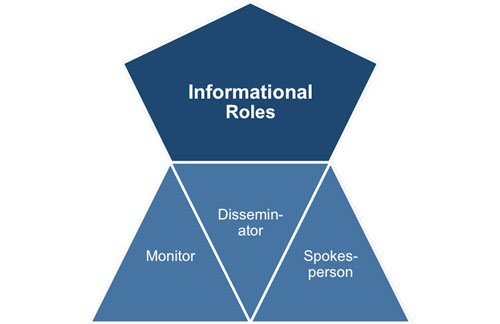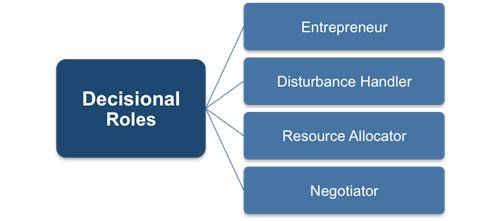10 Roles of Management in a Business
Hi there fellow Steemians.
I know that Steemians enjoy entertainment, artistic and unique posts mostly but I thought that today I will write an informative post to contribute to the diversity of Steemit and promote it on Google search results. As I have stated before, I am beginning my journey on Steemit by migrating all of my posts from HubPages to Steemit, and from the response I got from my first 2 posts I do not regret it at all. Anyway, this post is a 100% Steem Power Post.
Introduction
Management by its’ strictest definition means, “the process of dealing with or controlling things or people”. In the context of business, management is a whole lot more than that. Management can better be defined as; the organization and coordination of the activities of a business with the intention of achieving defined objectives and goals. Management can be a board of directors, CEO’s, floor managers, general managers, and production managers among others. The management of a business has certain responsibilities and roles to play within a business. Management is responsible for designing a business’s structure and dictating how different aspects of the business will interact with each other. There are many theories as to the roles of management. We will explore the most widely accepted definition of management roles proposed by Mintzberg. There are three main categories defining management roles of which each one has many sub-categories, defining 10 roles in total.

Image Source: https://www.emaze.com/@AFZQQWTC/Presentation-Name
Informational
The informational aspect of management is concerned with three roles, which are; monitor, disseminator, and spokesperson.
1.) Monitor
The responsibilities of the monitor role are to seek and acquire business related information. They do this in many ways. Each business will have different needs and the jobs will differ. The general method in which most management individuals and teams carry out this function is by; reviewing current press releases that could affect the business, investigate financial reports of competitors, attend business related seminars to keep the business up to date with current advances in their field, maintain contact with business associates and partners. For example, the management of Walmart must be aware of inflation rates.
2.) Disseminator
The duties of the disseminator role of management is to portray and communicate information to relevant parties within the business. They must maintain a flow or channel of open communication that incorporates into the culture of the organization. The method in which this carried out is by; sending memos and informing employees of decisions and developments in the business. For example, management must convey tasks to employees.
3.) Spokesperson
The spokesperson is responsible for communicating information about the business to outside parties. Their duties include; conveying reports, informational materials, memos and conducting meetings. Their work is what a business uses to attract investors, potential investors and associates of the business. They are the social face of business and their actions are closely monitored. The reputation of the business is often reliant on the spokesperson. The best example is the spokesperson of a government who relates information about the administration to the public.

Image Source: http://www.free-management-ebooks.com/faqld/leadmodels-01.htm
Interpersonal
Secondly, the interpersonal facet of management is associated with three roles as follows; figurehead, leader and liaison.
4.) Figurehead
The figurehead role of management is concerned with social and ceremonial appearances as well the performance of legal duties of the business. In a way they are a face of the business just like the spokesperson. Their duties are more informal. Their task is to; welcome clients, put their signatures on documents, cut ribbons at openings, and act as a host for events. They are symbolic leaders that the public looks up to. Often the business is associated with this individual’s actions. An example, would be the prime minister of England.
5.) Leadership
The responsibilities of the leadership role lean towards interaction with the employees of a business. They direct, guide and motivate their employees. When a business selects and employs staff members, the leader has a significant voice in the decision. They need to portray the ethos, culture, and uphold the standards of the organization in every action that they perform. Their actions are what will either motivate or destroy the productivity of the employees. For example, a leader that acts in good faith, with good morals, and displays an energetic work ethic will lead to employees acting in the same manner in their work. A leader who is corrupt, lazy and rude might discourage the employees to work and perform as required.
6.) Liaison
The duties of a liaison are to develop the network of a business. This means growing and establishing healthy relationships with employees, customers, partners, shareholders, the board and any other party related to the business. They often sit in and participate in meetings concerning business correspondence with representatives, and other divisions of the business. A police force liaison is a perfect example. Often different tasks force such as the FBI and CIA need to work together to achieve a common goal. A liaison from outside or from within these two parties will ensure a peaceful relationship.

Image Source: http://slideplayer.com/slide/4108989/
Decisional
The last category of management roles is the decisional one. The decisional branch has four roles as follows; entrepreneur, disturbance handler, resource allocator, and negotiator.
7.) Entrepreneurial
The entrepreneurial role is the brain and idea behind the business and all products or services of the business. There creative mind is responsible for finding new ideas and improving business aspects. They can do this by developing plans for future success of the business. Thereafter they must implement these plans with innovative techniques. This is a crucial role of management as it will define what makes one business stand out in comparison to another. In our modern, dynamic business environment it is especially crucial that entrepreneurs are always ahead of the game. An example is Alan Turing who built the first computer that was a breakthrough in modern technology.
8.) Disturbance Handler
The disturbance handler role is important in order to maintain peace and smooth running of a business. They supply a business with solutions to employee conflicts, crisis circumstances and develops strategic resolutions to disputes. An example is floor managers who often take up these duties to resolve the problem before it builds up to be a massive dispute with financial consequences.
9.) Resource Allocator
A resource allocation role is responsible for delegating and allocating resources to different divisions and aspects of the business. They design plans, draw up budgets and schedules and hand out materials to the appropriate sections of the business. This type of management has to have a keen sense of detail so that they do not allocate resources inappropriately, which often happens in large organizations. A good example is a resource manager who separates different types of woods into different budget sections in a furniture business.
10.) Negotiator
The responsibilities of a negotiator are to act as an intermediary and mediator between two parties within a business. They will often convey messages between the two parties to reach a compromised decision that will suite both parties. Their methods involve proposing ideas to both parties and thinking outside of the box to help maintain peace within a team or divisions of a business. For example, if two teams are fighting over salary allocations, then a negotiator will propose an alternative method to solve the problem.

Image Source: 
Conclusion
In conclusion, management is the most important aspect of a business. They are what makes or breaks an organization. Their roles vary according to the above classifications. Often, one manager can carry out a multiple number of these duties in a small business. In larger corporations, one role might need to be carried out by a team of managers due to the sheer workload and size of the role. A business must have individuals or teams of managers that will perform all of these 10 duties/roles, in order to succeed. A business could fatally crumble if the relevant managers with the correct personalities do not fulfill these duties.
Thank you for reading my article. I hope this helps many students and people interested in business management.
And remember that all proceeds from this post go to 100% Steem Power. Here is a video that might explain it better.
N.B. : This video is not my work all credits go to the publisher:

Badge Credits go to @madjack
Great post, very interesting issue!
During this phase, the project team works to gather all the necessary information to understand the project's goals, objectives, and requirements. This information is then used to develop a project plan and identify potential risks and challenges. This phase is critical to the success of the project, as it helps to ensure that everyone is on the same page and that the project is well-defined from the start. For more information on the Project Discovery Phase, be sure to check out the Anyforsoft blog at https://anyforsoft.com/blog/how-discovery-phase-helps-start-projects-better/ for expert insights and helpful tips.
I’ve been looking for ways to improve budget visibility at work, and Precoro’s Spend Management tool sounds amazing https://precoro.com/ It offers detailed tracking and real-time updates so you can catch overspending before it happens. Definitely a great option for teams trying to stick to budgets.
So, if you're running an online business then there would e some tricks to play a significant role over the web.
Here are the tips for you to manage your online business.
https://www.urtasker.com/how-to-successfully-ensure-online-business-management/